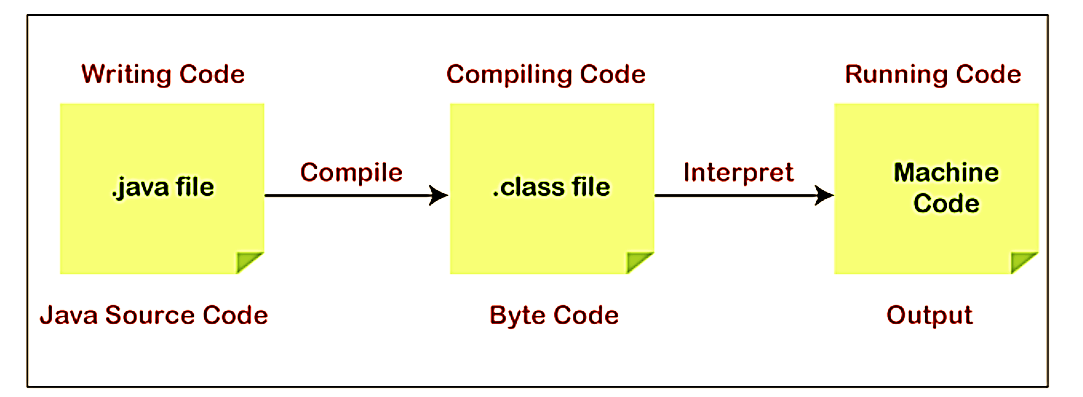What is the use of an interpreter in Java?Programming with Java is not dependent on any particular platform. It indicates that systems with Java interpreters can execute Java. It is the cause of Java's platform independence. The Java interpreter transforms Java bytecode (.class files) into code that the operating system can comprehend. We will learn about Java interpreters in this part, including what they are, how they function, and their characteristics. Additionally, we shall examine its distinctions from a compiler. What is an Interpreter?A computer program (system software) that implements the JVM is called a Java interpreter. It is in charge of reading and carrying out the program. Its architecture allows it to read the source program and translate the source code, line by line. The high-level program is translated into assembly language or machine language. 
The Interpreter's Function in JavaThe interpreter in Java is essential to the way Java programs run. Java program's source code needs to be transformed into an intermediate format known as bytecode using the Java Compiler (javac) before it runs. This bytecode is platform-neutral and may run on any computer with the Java Virtual Machine (JVM) installed due to the principle of Java (WORA- write once run anywhere). This bytecode is read and executed line by line by the Java interpreter which is a component of the JVM. It ensures that Java applications may run on several platforms without change by handling exceptions, managing memory, and doing Just-In-Time (JIT) compilation to translate bytecode into machine-specific instructions. Example 1Let's see a basic example to understand the function of the Java interpreter. Example.java Output: Numbers Explanation The program is executed by the Java interpreter in the following way: Use of an InterpreterLine-by-Line Execution: The bytecode is read line by line by the Java interpreter. In this instance, it runs the System.out.println("Hello, World!"); command upon seeing it, resulting in the console displaying the message "Hello, World!" Termination: The interpreter ends and the program completes its execution after it has finished running. Just-In-Time (JIT): The Java interpreter employs the Just-In-Time (JIT) compilation approach. Instead of simply understanding the bytecode, the JVM may compile it into native machine code at runtime. Memory Handling: The garbage collector is used by the Java interpreter to automatically manage memory. Memory leaks are less common since they track inactive objects and recover their memory. Java is a safer language to write large-scale applications with because of this memory management feature, which lowers the possibility of memory-related issues like buffer overflows. Exception Handling: Another important component of exception handling is the interpreter. In a Java program, the interpreter determines which exception handler is suitable and controls the flow of control when an exception is raised. Java has a strong exception-handling framework that enables programmers to create dependable and sturdy programs by gracefully resolving mistakes and faults. Dynamic Class Loading: Classes are dynamically loaded by the Java interpreter as needed. Java's runtime environment is fundamentally based on this dynamic class loading. It makes it feasible for Java programs to load classes dynamically, enabling runtime behavior modification and extension. Profiling and Debugging: Essential tools for profiling and debugging Java programs are provided by the interpreter. Programmers can examine and assess how their programs are being executed by using tools such as the Java Debugger (jdb) and profiling tools. Tools for debugging allow developers to find and address problems in their code, and tools for profiling assist Java programs to run more smoothly. ConclusionThe interpreter in Java, which is a part of the JVM, is essential to the operation of Java programs. Platform-independent and adaptable, Java is created by the Java Compiler and is read and executed by it. Since the "Write Once, Run Anywhere" tenet of Java is based on the interpreter, developers must understand the function that interpreters play in the language. The interpreter is an essential component of the Java environment, regardless of whether you are creating full-fledged programs or playing around with code snippets.
Next TopicAbstract Syntax Tree (AST) in Java
|
 For Videos Join Our Youtube Channel: Join Now
For Videos Join Our Youtube Channel: Join Now
Feedback
- Send your Feedback to [email protected]
Help Others, Please Share









